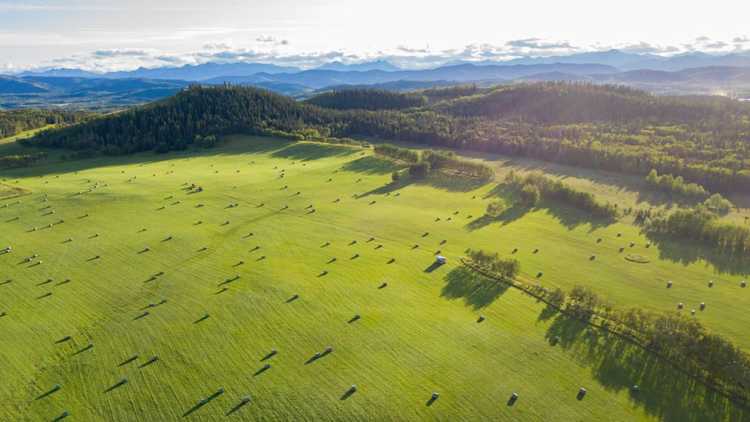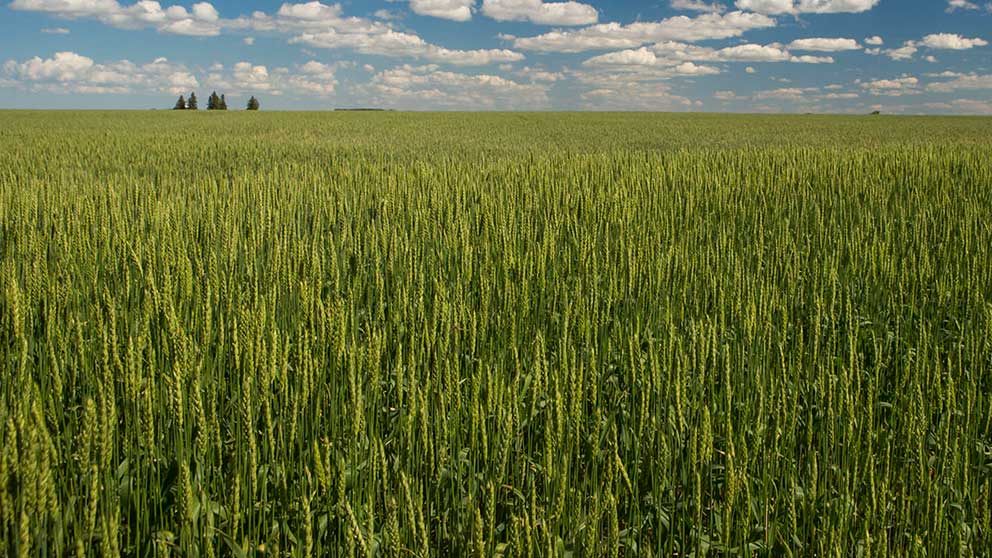Farmland renters may enjoy added growth and opportunities

Not only is renting farmland a necessity for most farmers, but done right, it can create more opportunities.
The most recent FCC Farmland Values Report revealed land values have reached record highs.
Renting land can allow for better cash flow management and growth.
“Owning land uses a ridiculous amount of cash,” says farmer and chartered accountant Kristjan Hebert.
Renting land, however, can allow for better cash flow management and growth, he says.
It can also open doors of opportunity, Hebert adds. By farming rented land, producers can take off profits that enable them to pay down any debts, and either buy land or invest in other areas, including off-farm, he says.
What’s more important than owning the land they farm is controlling the land they farm — such as through long-term leases and options to buy — in order to match equipment, inputs and manpower to their land base, Hebert says.
When those don’t match, that’s when farm businesses experience cash flow troubles. Hebert warns that farmers overextended on land might find themselves without adequate funds for inputs, equipment or people.
Rental rates
Lance Stockbrugger, also a farmer and chartered accountant, stresses farmers need to be aware that the one expense they have control over is land rent costs.
“Sometimes we as farmers get so used to be being price-followers that we forget we do have some control over some of these costs. And land rent is one of them, because we don’t necessarily have to pay that price,” Stockbrugger says.
He advises against renting just for the sake of getting bigger or to keep land out of someone else’s hands. Any new rental intentions need to be weighed against the various risks, as well as how those added acres fit into your business plans.
Retirement
Farmers renting a large chunk of their operations don’t have the same percentage of owned land to retire on as previous generations, but that’s not necessarily problematic, according to Hebert.
Assuming their farming career has been profitable, “I don’t think producers need to own a whole bunch of land to have a fairly comfortable retirement,” he says.
Although farmers may be retiring with a smaller proportion of owned acreage than before, the value of that land is far greater, Hebert points out.
He says retiring farmers who don’t trust the stock market or other off-farm investments are more likely to retain at least some of the land they own. They see it as a great asset to have in their retirement investment portfolios.
Whereas retiring producers, say, 10 years ago might have simply sold their farms outright, many more are now likely to rent them to others or sell some and rent out the rest, he says.
Bottom line
You no longer need to own all your land to run a successful farming operation. Renting can provide faster growth and help better manage cash flow. More land may be coming up for rent as retiring farmers hold onto at least part of their acres as an investment.
Article by: Richard Kamchen

Producers should be mindful that the slowdown in land value growth could increase their risk and that land values must be in synch with variables such as net income, interest rates, commodity prices and productivity, experts say.